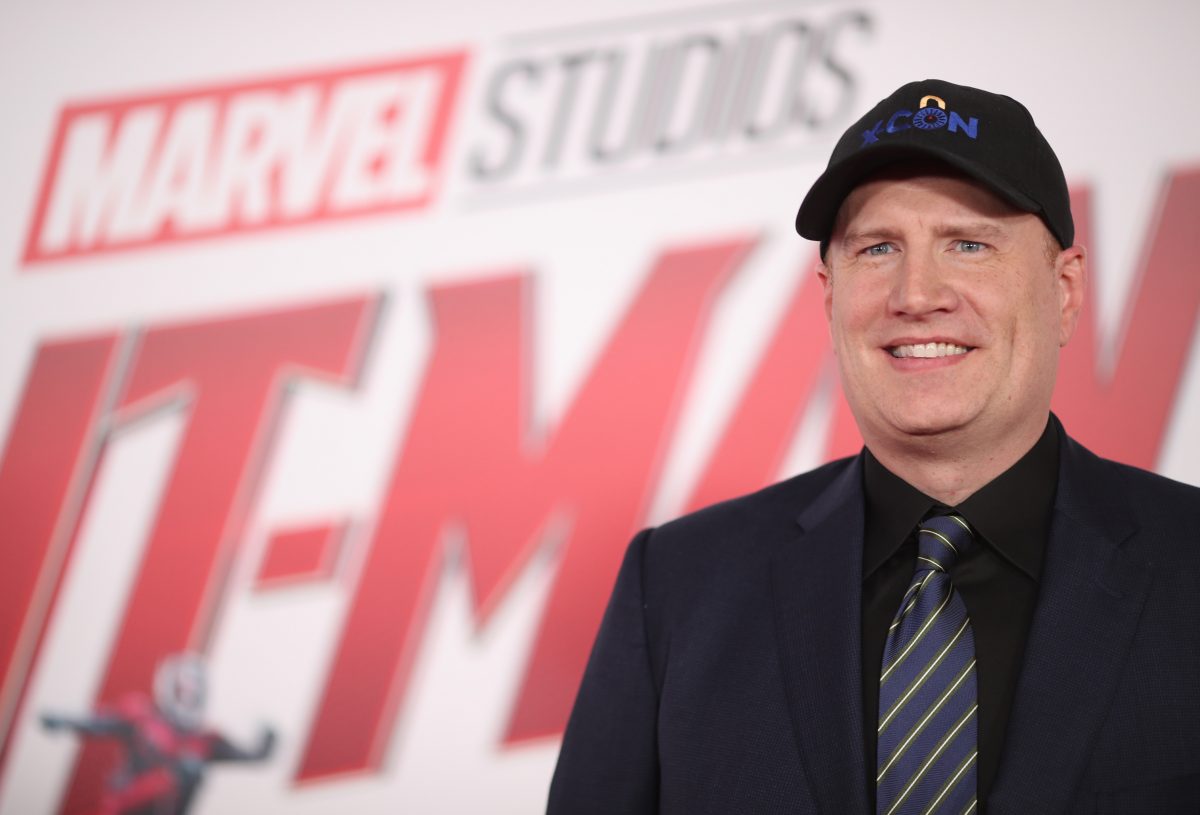Kevin Feige on Why It Took Ten Years to Get a Female-Led Marvel Movie
Blame it on Catwoman and Elektra. Oh, and sexism.

It’s no secret that fans of the Marvel Cinematic Universe are eagerly awaiting the arrival of Captain Marvel in 2019. Not only is the film integral to the resolution of Avengers 4, but it heralds the new phase of Marvel movies.
And after ten years, it is Marvel’s first female-led feature, both in front of and behind the camera. Entertainment Weekly sat down with Marvel head Kevin Feige, who said that the studio was planning more female-led films.
“With [Ant-Man and The Wasp] and now with Captain Marvel and many movies to be announced in the near future, I’m anxious for the time where it’s not a novelty that there is a female-led superhero movie, but it is a norm, and it is less a story of, ‘Oh, look, a female hero,’ and it’s more a story of, ‘Oh, what’s this about? Who’s this character? I’m excited to see that.’ And I think we can get there.”
This is all well and good, but why did it take 20 films for Marvel to finally center a story on a female character? Feige suggests that the culprit is in fact the dual failure of 2004’s Catwoman and 2005’s Elektra, both female-driven superhero films that failed critically and commercially. Catwoman had a budget of $100 million but raked in a measly $40 million in the domestic box office, while Elektra was budgeted at $43 million and only grossed $24 million domestically, barely recouping its budget on the international release.
“I think there are a lot of reasons,” Feige said, “not the least of which was fighting for many years the erroneous notion that audiences did not want to see a female-led hero [film] because of a slew of films 15 years ago that didn’t work. And my belief was always that they didn’t work not because they were female-led stories — they didn’t work because they were not particularly good movies.”
Female-driven films that stray outside the romcom or romance genre are already facing an uphill battle. The twin failures of both superheroine films cemented the idea that those films don’t have an audience, validating the already sexist bent of most studio heads and executives. Those movies didn’t fail for lack of an audience; they failed because they’re just plain bad movies (although Catwoman is a campy mess that I always end up watching when it’s on TV).
But in true misogynist fashion, the failure of both films was placed squarely on the female talent and the female audience (or lack thereof). 2006’s Superman Returns, while a box office success, did not perform well overseas and was met with a tepid critical response. Planned sequels were canceled, but it only took until 2013 for Warner Bros. to reboot the franchise with Man of Steel. Meanwhile, Joel Schumacher’s 1997 Batman and Robin, long considered the cinematic nadir of the franchise, performed adequately but was critically reviled. The film was so bad that it effectively ended the bat franchise until Nolan’s 2005 Batman Begins.
“I’ve always said, I root for all genre movies because the success of those movies helps us,” Feige says. “Because not everybody knows the difference between what studio makes what movie or what comic book company what character comes from. So I’m very pleased when any film in our genre [does well] — not just superheroes, but action or sci-fi or anything. The success of Wonder Woman made me very happy because as I’ve said before in the press, I’d much rather the question be, ‘Oh gosh, what did you think about that successful female-led hero that came out a few years ago?’ Rather than the question I used to get, which was, ‘Are you afraid that people don’t want to see a female hero?’”
Female superhero films would have to wait longer for their own redemption arc. It wasn’t until the critical and box-office domination of Wonder Woman last year that studios finally shifted their thinking. But to do this, Wonder Woman didn’t have to just be good. It had to be so undeniably successful that it killed any argument against superheroines.
It’s funny to think of it now in the wake of the film’s massive popularity, but there was a time when female fangirls were holding their breath in anticipation of the release. We know that if they didn’t get this right, it would be another 12 years before superheroines were given a shot.
Luckily, Wonder Woman crushed expectations, and studios now have the opportunity to tell superheroine stories the way they were meant to be told: just as nuanced, moving, and ass-kicking as the ones starring men.
(via Entertainment Weekly, image: Christopher Polk/Getty Images)
Want more stories like this? Become a subscriber and support the site!
—The Mary Sue has a strict comment policy that forbids, but is not limited to, personal insults toward anyone, hate speech, and trolling.—
Have a tip we should know? tips@themarysue.com